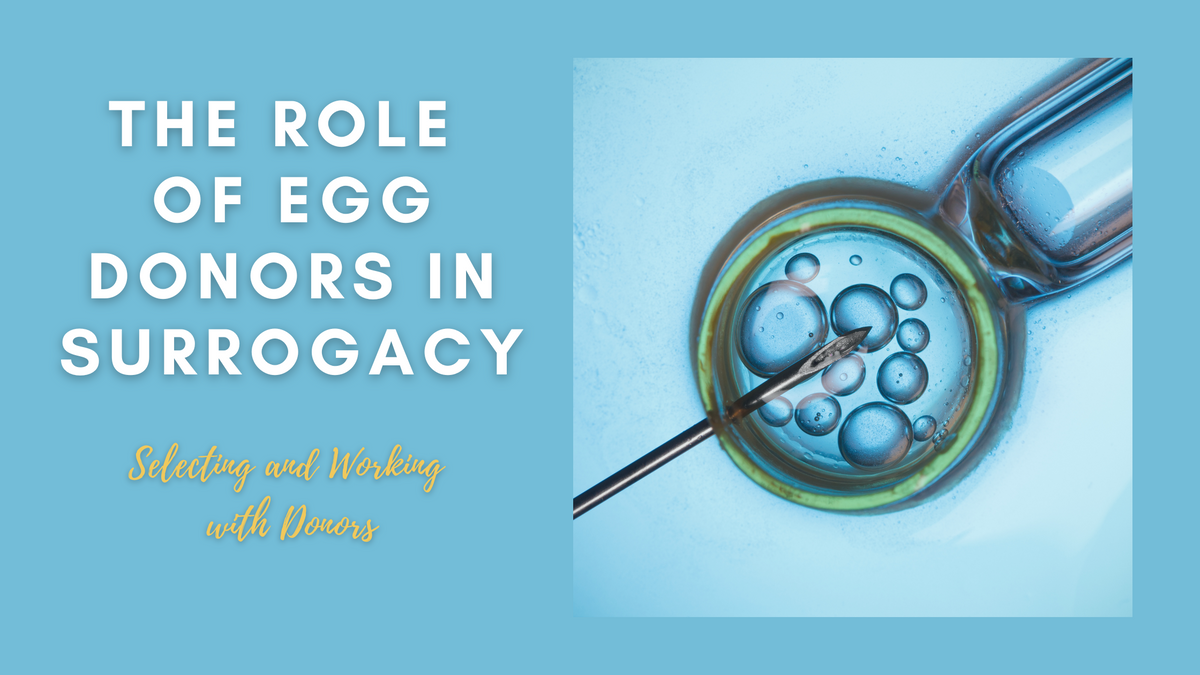For many intended parents, the surrogacy journey begins with choosing an egg donor. Whether due to infertility, medical conditions, or same-sex parenting, using an egg donor is an essential step in growing a family for some. Understanding how to select the right donor and navigate the process can help ensure a positive experience for all involved.
TAKE THE SURROGACY QUIZ >>>>> CHAT WITH A SURROGATE
Why Intended Parents May Need an Egg Donor
Egg donation is a vital part of many surrogacy journeys. Intended parents may require an egg donor for several reasons, including:
• Infertility: Some individuals or couples experience medical conditions that prevent them from producing viable eggs. Women who have undergone cancer treatment may also be unable to use their own eggs.
• Genetic Concerns: Intended parents who carry genetic conditions may choose an egg donor to reduce the risk of passing on hereditary diseases.
• Same-Sex Male Couples: Male couples pursuing surrogacy need an egg donor to create embryos before transferring them to a surrogate.
• Age-Related Fertility Challenges: As female fertility declines with age, some intended parents turn to egg donation as a solution.
TAKE THE SURROGACY QUIZ >>>>> CHAT WITH A SURROGATE
How to Choose an Egg Donor
Selecting an egg donor is a deeply personal decision, and there are multiple factors to consider. Many intended parents work with an egg donor agency or fertility clinic to find the best match. Key factors include:
1. Known vs. Anonymous Donors
• Known Donors: Some intended parents choose a friend or family member as their donor. This option allows for an ongoing relationship and potential future contact between the child and the donor.
• Anonymous Donors: Many donors prefer to remain anonymous, with their profiles shared through agencies or clinics. In these cases, only basic medical and personal information is provided.
2. Physical and Genetic Traits
• Many intended parents look for donors who share similar physical characteristics, such as ethnicity, height, or eye color.
• Genetic screening is crucial to ensure the donor does not carry inheritable medical conditions.
3. Health and Medical History
• A thorough review of the donor’s medical records helps ensure they are in good health and free of major medical issues.
• Donors undergo extensive medical screenings, including hormone level testing and infectious disease panels.
4. Education and Personal Background
• Some intended parents consider academic background, talents, and personality traits when choosing a donor.
• Many agencies provide donor essays or recorded interviews to give insight into the donor’s personality and interests.
Legal and Ethical Considerations
Egg donation is a complex process that requires clear legal agreements to protect all parties. Some key legal aspects include:
• Parental Rights: Donors typically sign contracts relinquishing all parental rights to the child.
• Compensation and Contracts: The donor will often receive compensation for her time and effort, as outlined in a legal contract.
• Future Contact Agreements: Some intended parents and donors agree on potential contact in the future, such as updates or communication when the child turns 18.
Working with an experienced reproductive attorney ensures that all legal matters are handled properly and ethically.
TAKE THE SURROGACY QUIZ >>>>> CHAT WITH A SURROGATE
The Relationship Between Egg Donors, Surrogates, and Intended Parents
The connection between an egg donor, the surrogate, and the intended parents varies based on personal preferences and agreements. While surrogates and egg donors usually have separate roles, some intended parents choose to facilitate introductions if both parties are comfortable.
Regardless of the level of involvement, clear communication and respect for boundaries help ensure a smooth and positive experience.
Final Thoughts
Choosing an egg donor is an important step in many surrogacy journeys. By carefully considering medical, legal, and emotional factors, intended parents can find the right donor match and move forward with confidence. Whether working with an anonymous donor or someone known personally, taking the time to navigate the process thoughtfully will help create the best possible foundation for welcoming a child into the family.
TAKE THE SURROGACY QUIZ >>>>> CHAT WITH A SURROGATE
Follow Surrogacy Mentor on Instagram , Facebook, YouTube and TikTok!

